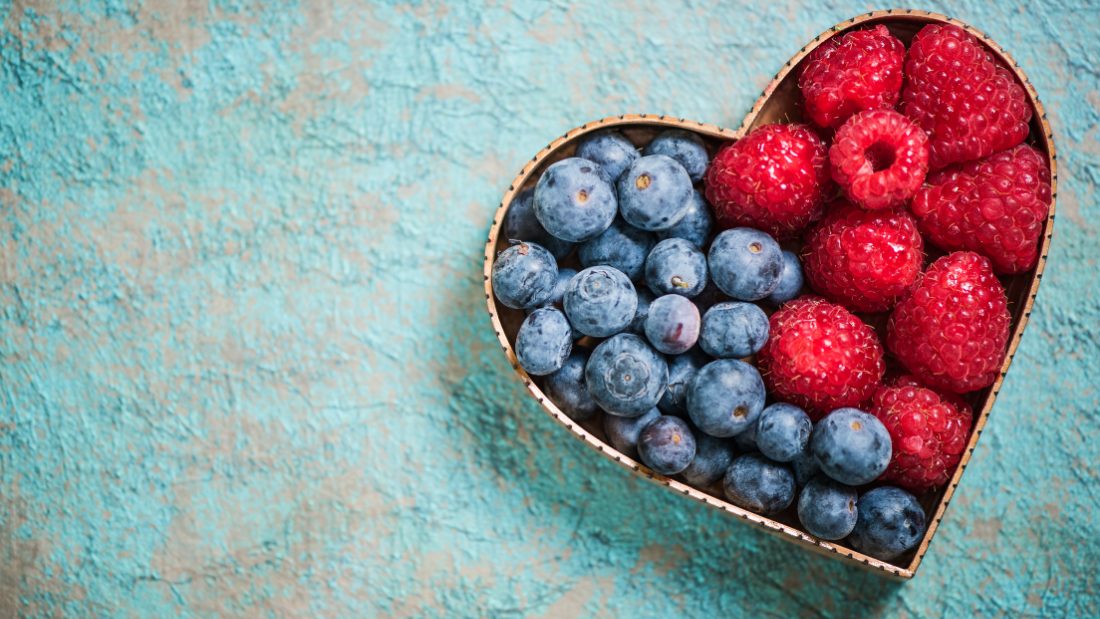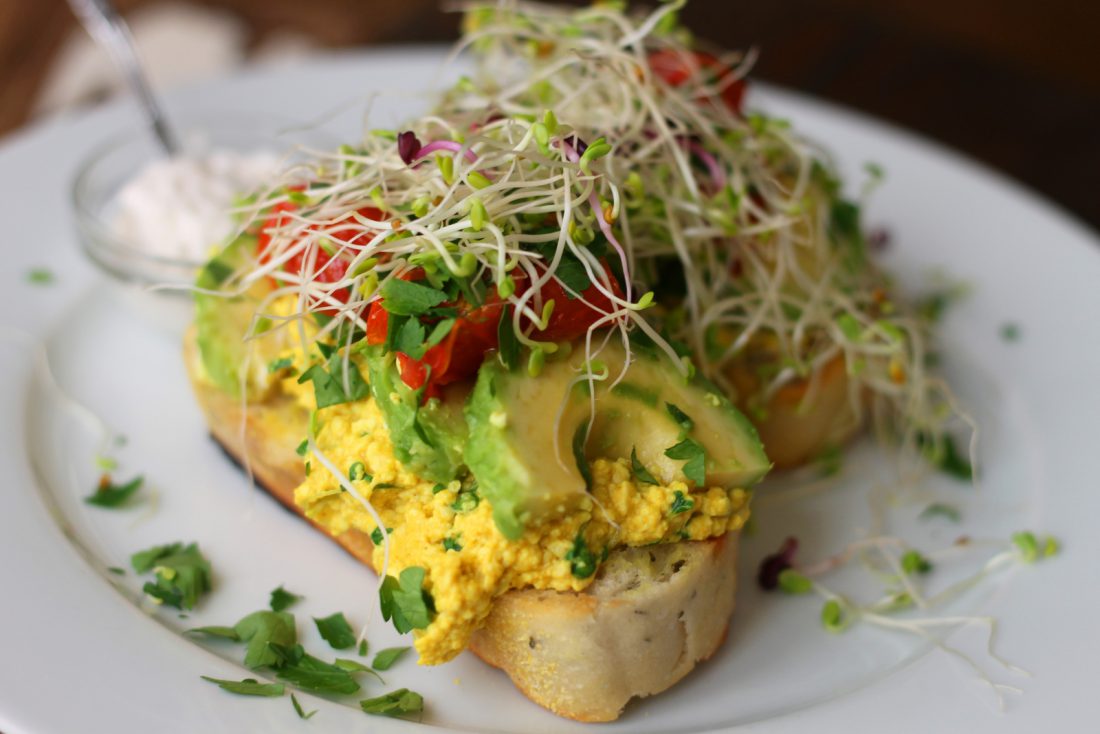The Fast Diet: 5:2 Intermittent Fasting – vegan style!

The Fast Diet: 5:2 Intermittent Fasting – Vegan Style!
The 5:2 diet is also known as the ‘intermittent fasting diet’ and has remained very popular over the last ten years for healthy, effective weight loss. The principle is that there are two fast days per week, where a person consumes just 25 per cent of their normal calorie intake (500 calories for women, 600 for men), and for five days a week people eat normally. On these days of normal eating, it is important to eat the same amount of food as usual, rather than binging on extra food – as you wouldn’t lose any weight by doing this!
Many people find the 5:2 diet easier to follow than other diets, as no food groups are excluded and it is very flexible! Calorie restriction only happens on two days of the week, and so for the majority of the week people can still eat their favourite foods and not miss out on fun foodie occasions. This flexibility makes the 5:2 easier to follow long term than many other diets and therefore it produces good results!
How do you do it?
- Choose two intermittent fasting days each week. Any two days are fine, as long as there’s at least one non-fasting day in between. These days can change each week, meaning you can be flexible around events etc.
- There is no correct way to eat on fasting days, you can eat a single meal or 3 smaller meals throughout the day – whatever works for you!
- It can be useful to keep a simple food/fasting diary to see whether the diet is working for you. Record your beginning weight and waist measurements, and continue to take these measurements weekly (preferably at the same time and day of the week) to track change over time. You could also record foods eaten each day, and track other changes such as mood, energy levels, failures, successes etc.
- When your target weight is reached, the two fasting days can be reduced to maintain this weight.
How does it work?
Not only does it help to lose weight easily and safely but that it is a natural way to eat – we gatherer/hunters had ‘lean’ days when there wasn’t much around and made up for it at other times. In the modern day, we now eat more than ever in human history and have more food choices than we know what to do with. It means that many of us eat more often; we eat between meals and we eat more fattening, unhealthy food. When fasting during the 5:2 diet, it gives your body a chance to digest all food and then start to use stored energy, first from glycogen (carbohydrate stored in the liver and muscles), and eventually from body fat.
What are the long term effects?
By offering a break from constantly digesting food, intermittent fasting has been claimed to support other bodily functions. Research shows intermittent fasting may be linked to improved brain function, a reduced risk of heart disease, stroke and cancer, and improved cholesterol levels and blood-sugar control. It also helps tissue repair – and what’s more, it doesn’t cause muscle loss in the way that traditional low calorie diets can do. Weight loss has also shown to be sustainable. It is advised that after achieving your target weight, reduce the fasting to one day per week.
Is it safe for everyone?
It is not recommended for people with diabetes, migraines, pregnant/breastfeeding women or those with a history of an eating disorder. If the fasting starts to become addictive, be kind to yourself and stop. There’s a risk that you may be prone to eating disorders and fasting may trigger a dangerous behaviour pattern. It is also not recommended if you are underweight or under 18 as your body is still growing.
It’s impossible to predict how your body will react – it can give you great results but it doesn’t suit everyone. If you have a physically demanding job, exercise a lot or have a health condition that reacts to such energy intake swings, it might not be for you. And as with any diet, it’s best to get advice from your GP, particularly if you have a medical condition.
Jane’s Story
“Well here I am, having lost 3.7k (just over 8lbs) in about three weeks, and it’s been remarkably easy! I had tried other methods but the thought of being on a constant low-fat diet for months made me want to reach for the cake immediately but, I actually enjoy the fast days. For those that know me and my voracious appetite, this is the biggest surprise. Yet it is as if my body gets a chance to rest and heal and everything looks a bit sharper and clearer. Psychologically, knowing that I can eat what I want the next day makes it that much more achievable.” Jane, former Viva! Food & Cookery Coordinator.
If you decide to try the 5:2 diet, let us know how you get on with it. We would love to hear your advice, what you found easy or hard and your favourite recipes too! Read our 5:2 Vegan Style Guide for more information, and we also recommend reading the V-Plan Diet Guide which explores the vegan foods to eat for optimum health.
What about vegans and veggies?
We have produced a small handful of vegan recipes for you to try! Recipes can be combined over the day, and each comes with an additional suggestion for men to increase to their allotted 600 calories. There are many more 5:2 vegan recipes online produced by vegan bloggers and chefs, or you could create your own!
- Porridge with Berries & Cinnamon 210 cals
- Plain Yoghurt with Fresh Fruit (259 cals)
- Tofu Scramble 232 cals
- Spiced Tomato Dahl 220 cals
- Green Beans, Spring Onions & Garlic Tofu with Soya-Chilli Dressing 252 cals
- Big Noodle Soup 257 cals

Tips for success:
- Non-fast days should be full of nutritious foods including fruit and vegetables, wholegrains and protein from beans and pulses.
- Meals on fast days must also be nutrient-dense to make each calorie count. Include vegetables and protein on fasting days with some carbs in order to help manage and control your appetite.
- Avoid fasting on two consecutive days to prevent tiredness and lack of motivation.
- Maintain your hydration with water and herbal teas, as dehydration may cause headaches, tiredness and lack of concentration, and hydration prevents hunger pangs from hitting too hard!
- On fast days, avoid high calorie oil and fats by boiling, grilling, or roasting rather than frying. Eat dark berries to fulfil sweet cravings without adding many calories. Soup is also great, as the added water and spices from the broth may help you to feel more satisfied without eating too many calories.
- Plain, unsweetened coffee and tea are acceptable during fast days. Herbal tea is also a great way to increase water intake.
Further reading
- 5:2 Vegan Style Guide from the Viva! Shop.
- Viva! Health blog: Eat your way to healthy weight
- Viva! Health blog: Intermittent fasting for weight loss – should you try it?

The author
This post was written by VRC Team
Vegan Recipe Club is part of the UK’s leading vegan charity, Viva!. We have hundreds of delicious vegan recipes; from easy weeknight dinners to showstopper desserts, and everything in-between! Keep your eyes peeled for new recipes each month developed by our expert team of foodies and from guest chefs too.
